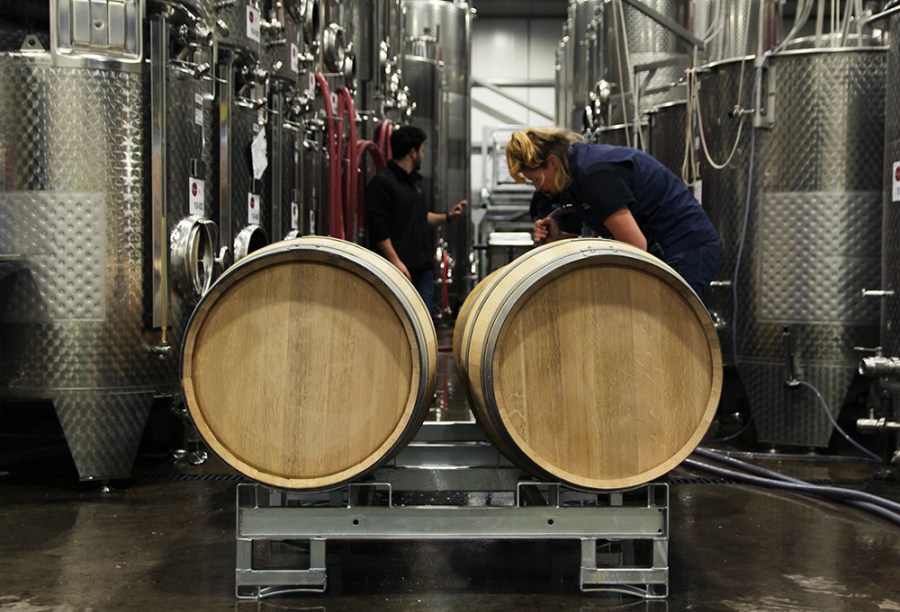The phenomenal growth of viticulture in the UK is seeing new vines planted across the country every year, meaning that there are considerably more vineyards than there are wineries. With growers keen to see the fruits of their labour turned into fantastically drinkable UK wine, contract winemaking is playing an increasingly important part in the industry.
There is a romanticism around planting a vineyard that can sometimes get in the way of the more practical considerations – like what on earth to do with all those grapes once they arrive.
It’s a phenomenon that Itasca Wines founder Malcolm Walker has noticed in the past, and one that he has now put to good use by offering growers an expert wine-making service
As a business venture, it came about almost by accident, albeit with a hefty price tag attached. It was after planting his own vineyard in Hampshire with business partner Simon Porter that other growers approached him and asked if he was likely to have any capacity to handle their grapes.
“It soon became clear that there was a need for a winery that could offer contract winemaking to people who had a love of vineyards and the skill to grow grapes but did not have the facility or the equipment to make wine from them,” said Malcolm, a film and TV producer by profession.
“That need is likely to increase in the future, too. A lot of the more established vineyards that do have their own wineries have been offering contract winemaking to take up the slack in their own facility, but as their own wines take off, it will leave them with less spare capacity to offer to other growers.
“Add to that the phenomenal growth in the popularity of English wine, particularly the sparkling variety that is rivalling the output from France, and it is clear that contract winemakers are set to play an increasingly important part in this rapidly expanding industry.”
Malcolm’s move into viticulture began after he moved his TV and film production company Itasca Films to offices at Penn Croft Farm, Crondall, Hampshire eight years ago. Already a wine enthusiast from a consumer perspective, he began filming a 12-part wine travelogue called Cellar Rats, meeting and learning from experienced wine growers and makers.
Meanwhile his new landlord, farmer Simon Porter, had for some time been toying with the idea of planting grapes at Penn Croft Farm, which has long been farmed under Conservation Agriculture principles and benefits from rich and healthy soil.
With Malcolm’s new-found contacts, Simon’s prime Hampshire soil and a mutual love of grapes, wine and an exciting business challenge, the partnership was born. The first vineyard – 9,600 vines planted four metres apart using the Scott Henry System – was planted in May 2019, with the Chardonnay, Pinot Noir, Pinot Meunier and Bacchus vines all planted by hand under the watchful eye of Vine Care UK’s Paul Woodrow-Hill.
-
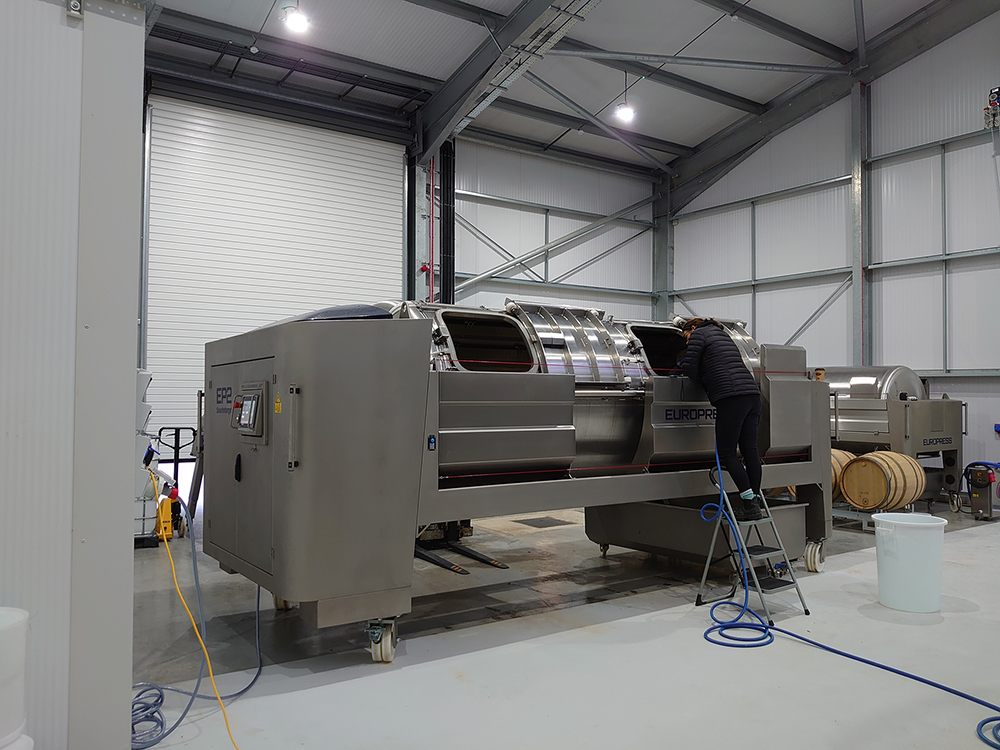
-

-
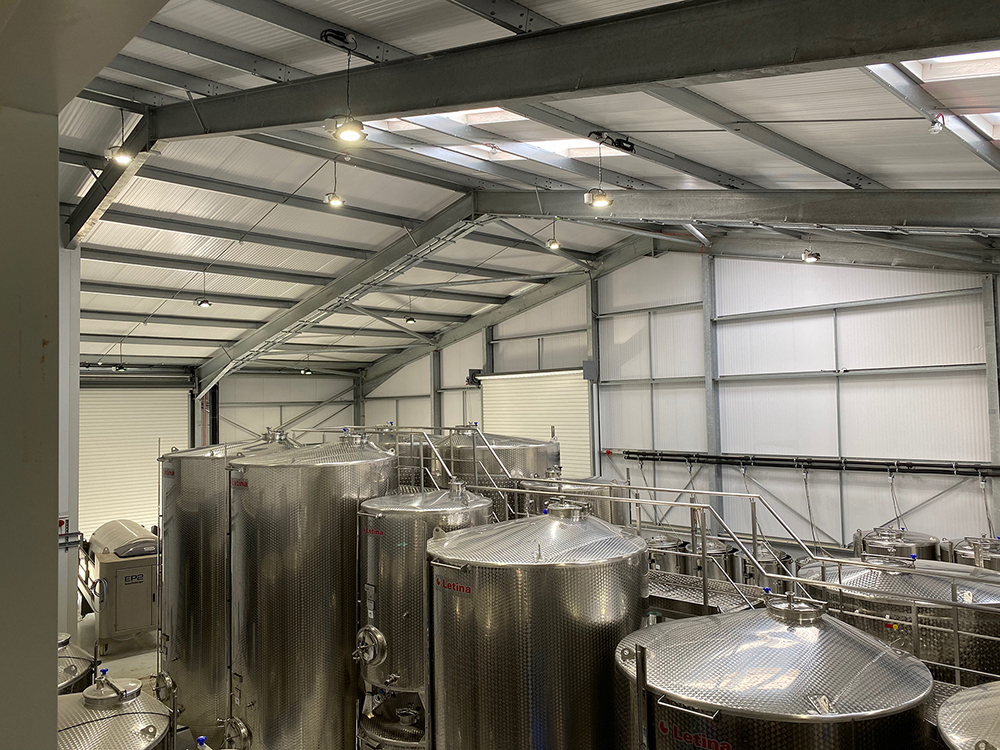
-

-
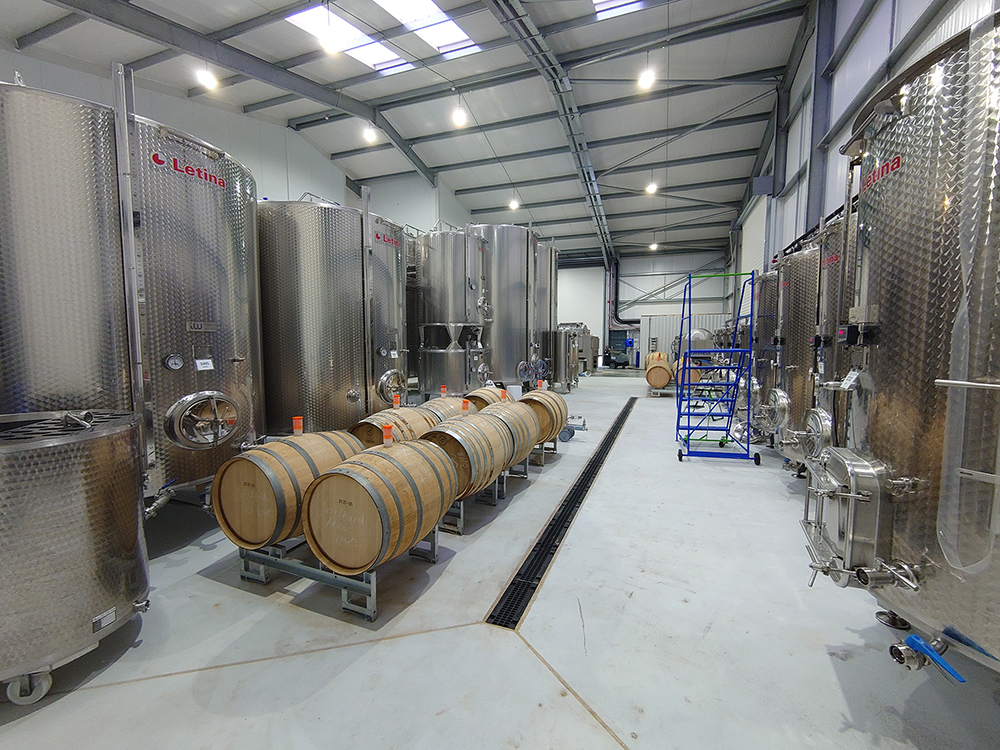
Itasca Wines
“It wouldn’t have happened even five years ago,” Malcolm admitted. “It was filming for Cellar Rats that showed me just how far English wine had come and how much of a demand there was for it. I realised how many talented viticulturists had come out of places like Plumpton College, gone around the world learning their trade and then come back to the UK to make great wine. It was an eye-opener for me and I wanted to be part of it.”
At that point the idea was to grow great grapes, find a winemaker who would turn them into wine and film the result, but the story soon took on a life of its own. “We were suddenly getting calls from all over the place from growers who wondered if we would have spare capacity,” Malcolm recalled.
“We did some research and realised that there was a real imbalance between the number of vineyards now springing up in the UK and the number of wineries on hand to create the end product. Some people find the idea of planting a vineyard romantic but don’t think beyond that – and in any event setting up your own winery takes a significant amount of capital and many growers simply can’t afford it.
Malcolm and Simon did the maths, tallied up the number of growers who had already made contact with them and took the plunge, replacing two disused barns at Penn Croft Farm with a smart, new state-of-the-art winery. It was a challenge, with work only starting in February this year, but by September it was ready and waiting for the first grapes of the 2020 harvest.
With Penn Croft Farm’s own grapes not due to be ready until 2022, Itasca’s Head Winemaker Ben Smith has this year made 3,000 bottles of English sparkling wine using grapes from Jenkin Place Vineyard three miles away. From this November, those same vines will formally become part of the ‘Penn Croft’ stable, since Itasca has now leased the Jenkin Place vineyard from owner Simon Bladon on a seven-year deal.
Ben will also be making wine for a number of other growers that have taken advantage of the new contract winemaking service on offer from Itasca, including Petworth-based Coldharbour, Wooton Vineyard in Somerset, Kenton Park Estate near Exeter and two vineyards in Essex.
Another intriguing deal will see Itasca supplied with juice from South African vines that will be used to make 67,000 bottles of British – not English – sparkling wine under the Lady Fizz brand. “It’s pitched as being a cut above Prosecco,” Malcolm explained. “We are excited at the prospect of making wine from South African grapes.”
To smooth the process of making wine from grapes grown all over the country, Itasca delivers its own standard-sized bins to its clients around the country and then collects them once they are full. It’s a lot of work servicing clients as far away as Exeter – and makes Malcolm a difficult man to get hold of for an interview – but it makes life easier in the long run.
The purpose-built winery also simplifies the process. “The grapes go in one end and then two years later English sparkling wine comes out the other end, bottled, labelled and ready to be handed over to the satisfied customer,” Malcolm said. The winery will also make some still wine but is focussing on fizz.
At the helm will be Ben Smith, Head Winemaker at Oxney wine Estate in West Sussex for five years before joining Itasca Wines. “We are thrilled to have someone of Ben’s talents on the team,” said Malcolm. “His knowledge and experience have also helped us optimise the winery design and layout.”
Importantly, Ben will also be working with the growers throughout the year, visiting to discuss vine health, advising on the right time to pick the grapes and discussing the right blend to create the ultimate wine. “It’s a complete service that is designed to support the grower throughout the process as well as delivering the wine at the end of that process,” said Malcolm.
The Itasca winery has a maximum throughput of 800 tonnes, although the site has room to expand in future if necessary. Malcolm is expecting it to handle 100 tonnes in this, its first year in operation.
The winery currently has one two-tonne and one four-tonne Europress and is planning to add an eight-tonne version next year. It has 32 stainless steel Letina fermentation tanks and a fully automated bottling line, together with riddling cages and a full disgorging and packing line, all French in origin.
“Fitting out the winery cost around £1.3m, on top of the £1m cost of the building, but with English wine taking off as it has been, we feel there is a clear demand for such a state-of-the-art facility,” said Malcolm. “It’s long-term investment, but it does show important facilities like these are for growers who really couldn’t afford to build their own.”
-

-
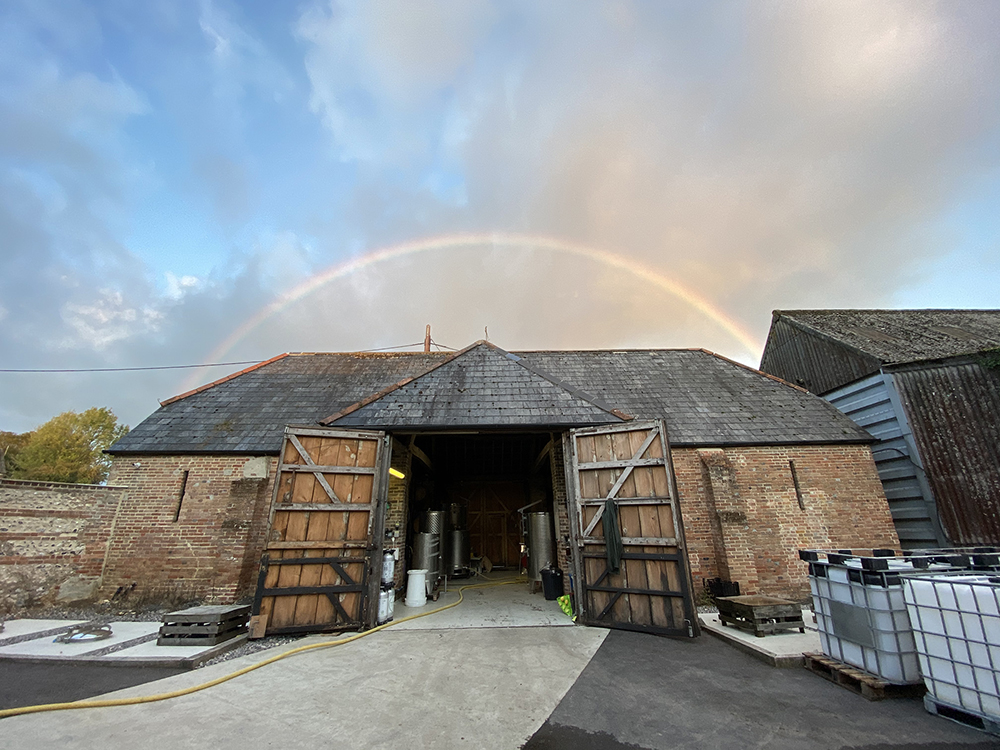
-

-

Langham Wine Estate
The close relationship between growers, winemakers and others in the industry also delivers new clients. “This is an industry where everybody helps everybody else and everyone shares information, despite officially being in competition with each other,” Malcolm said. “Word of mouth spreads quickly and growers are quick to recommend services to people they know would benefit. It’s very refreshing.”
And this year’s harvest? “The tonnage looks like it might be low, but the quality is good. I think this will be a good vintage.”
With such a clear demand for winemaking capacity, it seems surprising that the UK boasts only one contract-only production facility, but Defined Wine’s Henry Sugden has that honour.
After serving in the Army and working in the City, wine enthusiast Henry set up the winery just outside Canterbury in Kent last year and is already building up a good customer base amongst growers across the South East who value the care and attention the Defined Wine team dedicates to each project.
“We find growers like the fact that the focus is purely on their wine,” said Henry. With wineries that offer spare capacity there can sometimes be a tension between concentrating on their own vintage and looking after their other customers. “With Defined Wine that is not an issue. We have no brands of our own, so all our clients are important to us.
“We can take the grapes from crate to case or support growers or wineries in whatever way works for them, whether they pick into crates or bins or machine harvest. And although we don’t grow grapes or sell wine, we believe that we need to help growers with both, so we visit the vineyards and run viticulture sessions as well as providing marketing support.”
The 2020 vintage, Defined’s second, has been made by Poppy Seeley, who has a Masters Degree in Oenology from Plumpton College and has made wine in countries all over the world, including Australia, New Zealand, the US and South Africa.
Defined, which makes both still and sparkling wine, also has the support of consultant winemaker Owen Elias, recently nicknamed “the Gandalf of English Winemaking” by Vineyard contributor Matthew Jukes, while new head winemaker Nick Lane, due to join the team shortly, has been working in Champagne for no less a brand than Dom Perignon.
Henry has invested heavily in ensuring Defined has top quality equipment, particularly in the laboratory. Alongside three different presses and a range of temperature-controlled tanks, the largest of which can hold 20,000 litres and the smallest 500 litres, the vineyard has a Pall crossflow filter and a series of gyro cages to support the disgorging, bottling and labelling equipment.
The lab has an Oenofoss machine for detailed analysis, along with a spectrophotometer, turbidimeter, density meter, heat bath and equipment to analyse the amount of dissolved oxygen and dissolved carbon dioxide present, which is particularly useful before bottling still wines. The disgorging line has a jetting unit to reduce oxidation and automatically checks 100% of bottles for fill level and cork and wire integrity.
One of the largest producers in the South West is Langham Wine Estate, where head winemaker Tommy Grimshaw favours what he calls a “hands-off approach”, although he is happy to work with growers who prefer more intervention.
Tommy likes to allow spontaneous fermentation using the indigenous yeast that arrives with the grapes as he believes it gives “a true representation of the site where it was grown”. He doesn’t filter or fine the wine unless asked and he uses a 50/50 mix of stainless steel and oak barrels, preferring the latter because it helps to create a more complex base for English sparkling wine and adds texture to still wines.
It is an approach that has seen Dorset based Langham Wine Estate win numerous national and international awards and trophies, including a WineGB Supreme Champion Award for its Blanc de Blancs 2015.
-

-
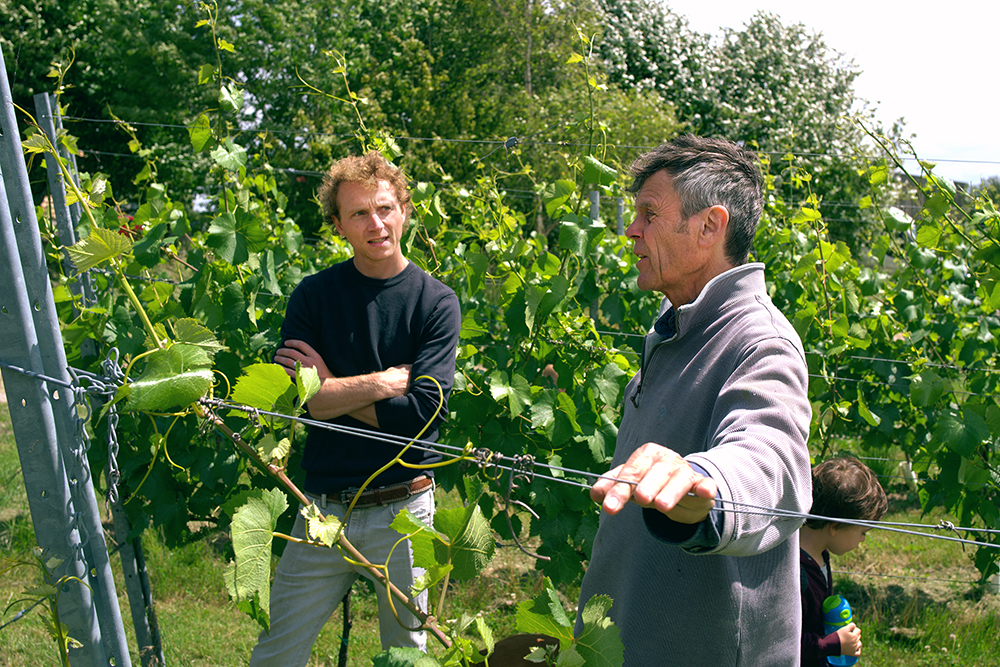
-
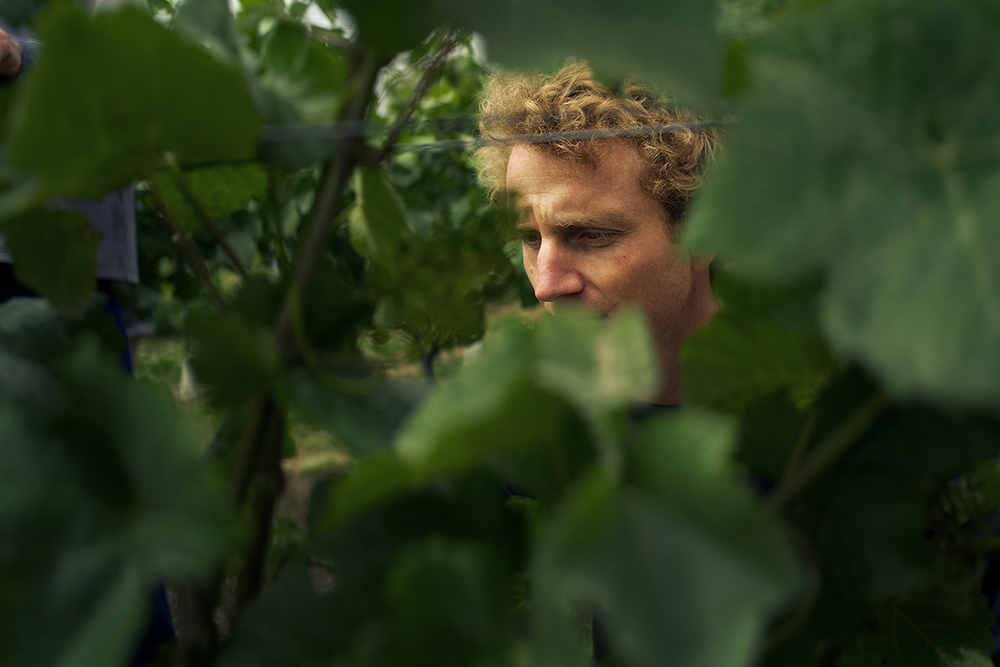
-

-
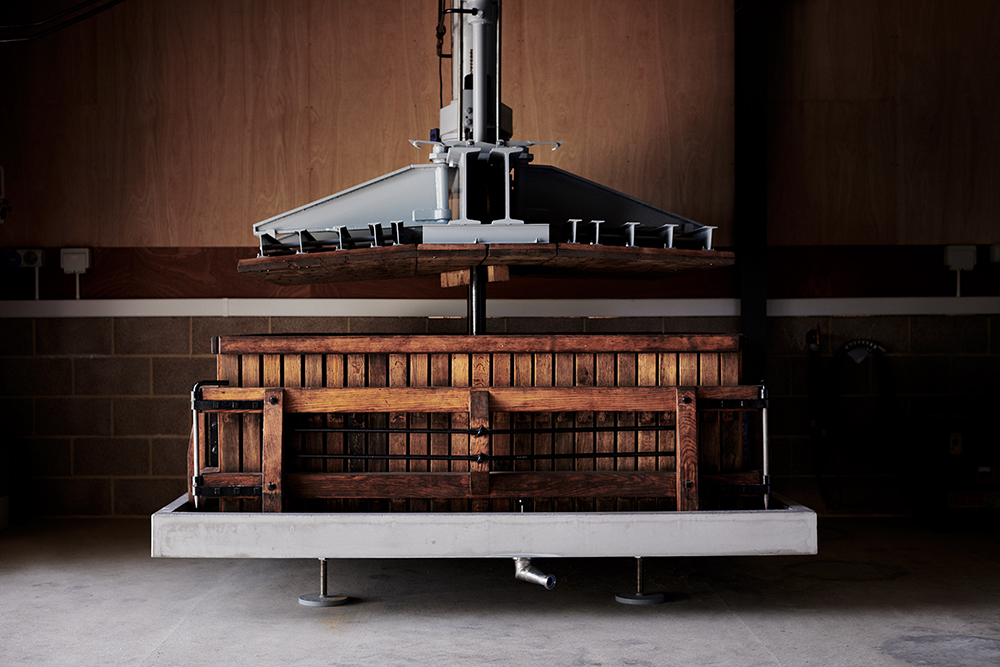
-
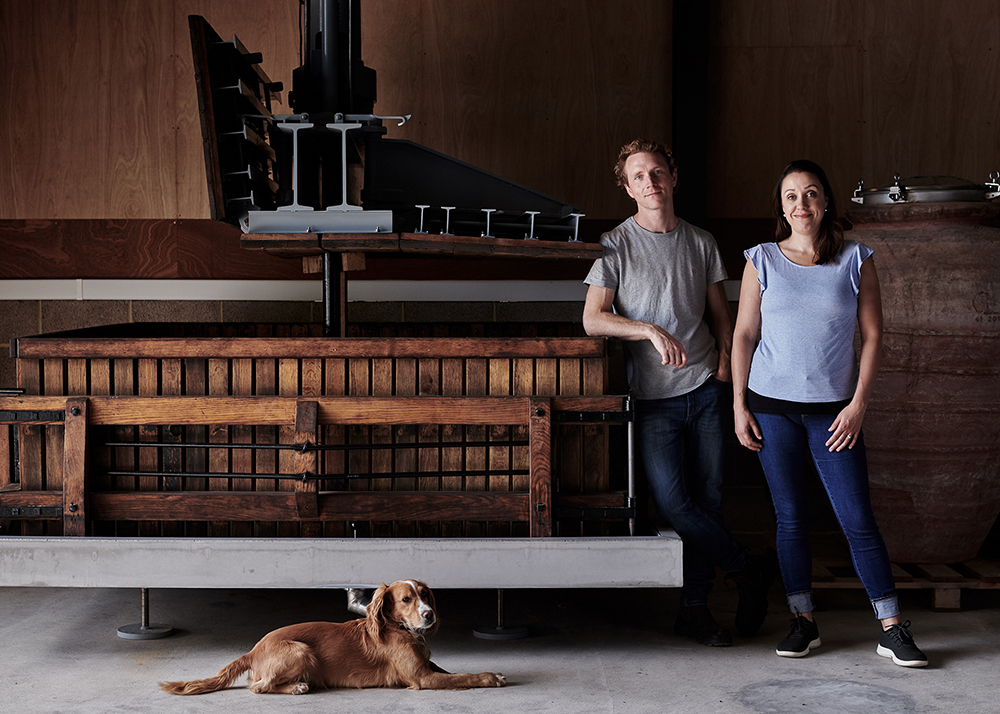
-

Offbeat Wines
“We offer the complete winemaking service and we are happy for our growers to contribute as much or as little as they choose,” said Tommy. “The customer can hand over the grapes and come back when they collect their wine or they can be fully involved in the process and work with us throughout.
Tommy, who is expecting to make 60,000 bottles this year, pointed out that the Langham Estate equipment was all chosen for its gentle action. “We are looking for quality rather than volume,” he explained. The winery has the capacity to make another 40,000 bottles and space to expand as demand increases.
Langham was home to winemaker Daniel Ham until two years ago, when he left to follow his own minimal-intervention approach through his own company, Offbeat Wines, based in Wiltshire.
Daniel met grower Hugo Stuart when he asked Langham Wine Estate to make wine from his vineyard at Botley’s Farm, Downton, near Salisbury. The pair shared a common approach to winemaking and when Daniel discovered that Hugo was looking to set up a winery at Downton he decided to rent a building at the farm, invest in the necessary equipment and set up Offbeat Wines.
As well as buying in fruit – mainly organic, biodynamic and minimally sprayed grapes – to make its own wine, Offbeat Wines is offering contract winemaking, with this year’s split looking set to be roughly 50/50.
Daniel likes to pursue a natural approach, and while he does produce English sparkling wines, he is also keen to make other styles that he believes work with grapes grown in this climate. He also enjoys working with less fashionable grapes like the Germanic hybrid varieties that were planted before the current boom – varieties such as Solaris, Triomphe, Madeline Angevine and Rondo
“I like to start with the fruit and make a wine that the grapes lend themselves to,” he commented. Daniel also created more unusual wines including pet nat and skin contact styles. Pride of place in his new winery is a two-tonne traditional Coquard square basket press from Champagne, built in the 1970s but refurbished and delivering a very gentle press. He uses a range of barrels and even a terracotta amphora from Italy.
“Having started the business in January and then gone straight into lockdown, this year has been a bit of a roller-coaster, but everything is now up and running and we are working closely with a number of clients who share our vision,” Daniel added.

